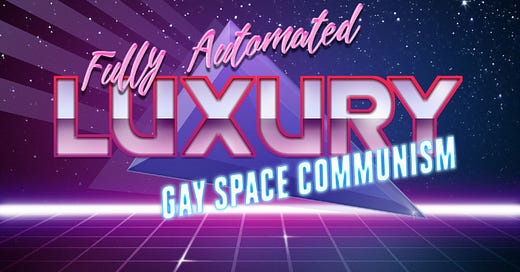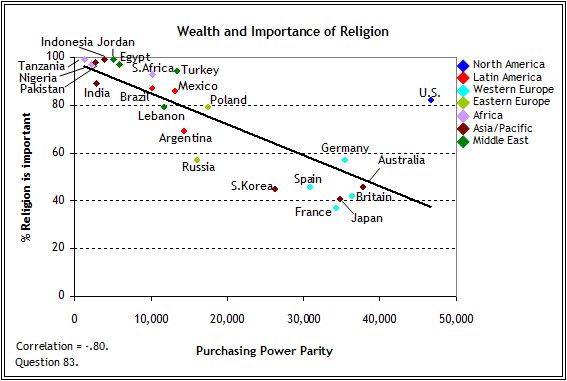Once again, Twitter comes through as a go-to source for material to write about. So I was a bit amused when I came across this tweet a few days ago,
I found it amusing because I have to admit, Star Trek is one of those things I would now classify alongside, say, the MCU movies as being the domain of the bugman. And since bugmen are a little…suspect in my eyes, well, you know. But as it turns out, the text in the tweet comes from an article appearing all the way back in 2005 in the Huffington Post, before that outfit became pro-paedo. Within that article, we find something interesting,
There is another aspect of Star Trek that likely makes it irresistible to perverts. It is utopian, in the sense that all the differences and distinctions which create tensions here on earth have been eradicated. Despite their exaggerated sexual characteristics, for example, the crew members are citizens of a utopian interracial and interplanetary world where the usual conflicts associated with gender do not apply.
In perversion, there is an attempt to obliterate any distinctions that provoke unconscious anxiety. First and foremost, this entails a denial of the difference between the sexes and the difference between the generations. Pedophiles are, at the very least, attempting to deny the difference between the generations. The utopian fantasy here is to normalize sex between adults and children.
According to Dr. Peter Mezan, a psychoanalyst in New York City, "There is an impulse that is common to perversion and to utopian thinking. The wish is to create a world in which differences make no difference. The great utopian thinkers have been immensely inspiring, but there is a reason that utopian communities have never worked out. In the name of equality of every sort and in the attempt to eliminate the tensions that normally divide us, they propose to create a marvelously unnatural world without the usual boundaries…”
Star Trek, from its inception as a franchise, has been the perfect avatar for post-WWII American globohomo progressivism. With the exception of Star Trek: Enterprise (which attempted to be a prequel but without the ever-evolving progressivism and thus didn’t last as long since it didn’t appeal to the hard-core fan base), every succeeding installment in the franchise has pushed the limits of progressive thought as it existed at the time of any one series.
The original series featured a combination of feminism, civil rights-era egalitarianism, and the loosening sexual mores of the late 1960s. When the franchise was rebooted with Star Trek: The Next Generation in 1987, it presented a less campy but more progressive world envisioned for post-modern America with full gender and economic equality, a shiny, sciency future civilisation where every need is met and which doesn’t even use money anymore. It was the very epitome of the utopian community that HuffPo would later write about. Indeed, ST:TNG was dropping radically progressive platitudes every step of the way, to the point where even the prog-left funnymen at Honest Trailers had to take notice (jump to 4:34 for the relevant part),
Yes indeed, progressives always think that the Future. Is. Woke. And it only got more woke as time went on. Star Trek: Deep Space Nine, which ran from 1993-1999 reflected a lot of Clinton-era progressive fears about right-wing populist and militia threats (exemplified by cartoonish authoritarian enemies such as the Cardassians and then the Dominion), which would eventually be overcome by the Right Thinkers in the Federation. Star Trek: Voyager (1995-2001) can be interpreted as a psychological archetype of progressivism’s own sense of being “lost in the wilderness” after losing control of Congress in 1994, thus seeing important pieces of the progressive agenda stall out such as universal healthcare. In that series, the Voyager, captained by strong independent womyn Kate Janeway, is teleported to the other side of the galaxy by a freak accident and must struggle home while facing opposition from clownish, unintelligent opponents, who are (probably) expies of Newt Gingrich and Republicans in Congress.
I’ve gathered that there are some much more recent series involving Picard and also an alternate universe reboot, but I don’t know anything about these. And from what I’ve heard so far, this is probably for the best.
The point to all of this is the observation that there is a not insignificant correlation between people who really, really, REALLY like the progressive utopian vision presented in Star Trek and people who don’t want “outdated” moral systems interfering with their lifestyles. Obviously, watching Star Trek doesn’t make you a paedo, but being a huge enough fan to dress up like a Klingon at every convention suggests there’s a correlation between your fandom and your agreement with the fundamentally materialist premises of the shows and all of the things that follow from this. It’s one of those “a square is a rectangle, but a rectangle is not necessarily a square” type of things.
Now, moment of truth time - I used to watch Star Trek when I was younger. As a pre-teen, I’d watch the original series in syndication after Saturday morning cartoons (but not really “get” most of what I was watching). Then, when I was in junior high, ST:TNG came out and I watched it because of childhood nostalgia, but didn’t really clue in to the progressive programming found in the series. Years later, I watched ST:Enterprise on Hulu, expecting another quantum leap in the series (but was disappointed). Around the same time, I watched ST:DS9 through but was kinda meh about it. I got through three episodes of ST:Voyager before getting annoyed and giving up on it. So I’m not a trekkie, and in retrospect the obvious materialist, utopian aspects of the show should have been apparent to me, especially the way ST:TNG in particular pushed the envelope for the mores of the time it aired. Still, I am familiar enough with the franchise to be able to talk about it.
I would argue that an integral element in many folk’s obsession with Star Trek is their identification with and affinity for the absolutely materialistic, hyper-egalitarian and even communistic world presented in the franchise, which was hinted at in the original series but became much more explicit in later installments. The franchise is explicitly yet subtly anti-spiritual. The Star Trek franchise was designed to be an avatar of Fully Automated Luxury Gay Space Communism. It represents the dream of progressive utopians everywhere of a magitech universe of libertarian hedonism and egalitarian prosperity free of any real existential threats. The end point of modern materialistic society is one in which anything will eventually go and every degradation becomes increasingly commonplace. The Star Trek franchise is supposed to be that endpoint - an egalitarian, post-scarcity, multicultural, pansexual, anything goes world where you can have or be anything you want, on or off the holodeck. It’s sort of a televised version of Iain Banks’ Culture series of books, which also involve a galaxy-spanning globohomo society that actively tries to subvert and convert other civilisations to its globohomo standards (sound familiar?).
Naturally, such a vision does not brook any contradiction or limitation. I’m reminded of one episode of ST:DS9 that I watched in the Dominion War arc in which an “extremist group” was introduced who believed that the Federation needed to toughen up and not be so soft and hedonistic (they were the bad guys, obviously). At first, Worf - the Klingon guy - sort of agrees with them, but even he - the proud warrior race guy inured to hardship and toil - can’t handle it when they commit the unthinkable terroristic atrocity of shutting off the weather control machines on the pleasure planet of Rysa, causing it to rain so that it ruins some peoples’ vacations when they can’t spend every waking moment on the beach.
Now, it’s a common conceit on the part of atheists and other materialistically-minded people that prosperity and religiosity are inversely proportional. They point to graphs such as the one below to support this,
So the more materially prosperous a country is, the less religious it tends to be. However, this conclusion is highly acontextual and tends to leave out a whole host of other issues, such as aggregated national IQ and what the particular legacy religion in most of these prosperous countries happened to be (Christianity). Plus, they tend to have their chain of causality precisely backwards. Losing your religion isn’t a magical fetish that creates prosperity out of thin air. Rather, sober and sane Christian (not necessarily “religious”) society creates the prerequisites for prosperity, but prosperity in turn tends to make people fat and happy and self-satisfied, so they forget the spiritual standards of their forefathers. So you then have increasingly irreligious societies coasting in the wake of their earlier religious ancestors.
Indeed, despite their gasbagging about it, materialistic progressivism is never going to lead to a shiny, secular Star Trek world. In fact, all the evidence we have at hand in the Current Year seems to suggest just the opposite - the more progressive a place is, the more it tends to be falling apart at the seams. Indeed, the testimony of history suggests that the only way for progressive polities to keep this from happening is to consciously suppress the very social liberalism that they used to undermine and demoralise the bourgeoisie society that came before them, as happened in the Soviet Union for example. There may be a lot of progressive, woke regimes in the world today, but all of them seem too busy stifling science with diversity, inclusion, and equity (DIE) requirements to get around to inventing teleporters or warp drives.
Ultimately, people don’t want to get rid of moral standards because of any altruistic support for abstract principles like “freedom,” “equality,” or “science.” They do so because they want to do the things that are forbidden by moral principles and for which they might get in trouble if they did them. Sadly, as we’ve been seeing in recent years, this includes diddling kids. So no, it’s not really that surprising that a bunch of people who want to do that would be attracted to the sort of utopian vision where the chains of religion and morals have been removed. Like a number of other popular entertainment franchises, Star Trek provides a place for bugmen to escape from the drudgery of their not-as-woke-as-they’d-like world into the fantasy land of progressive utopian wokism brought to its singularity point.






